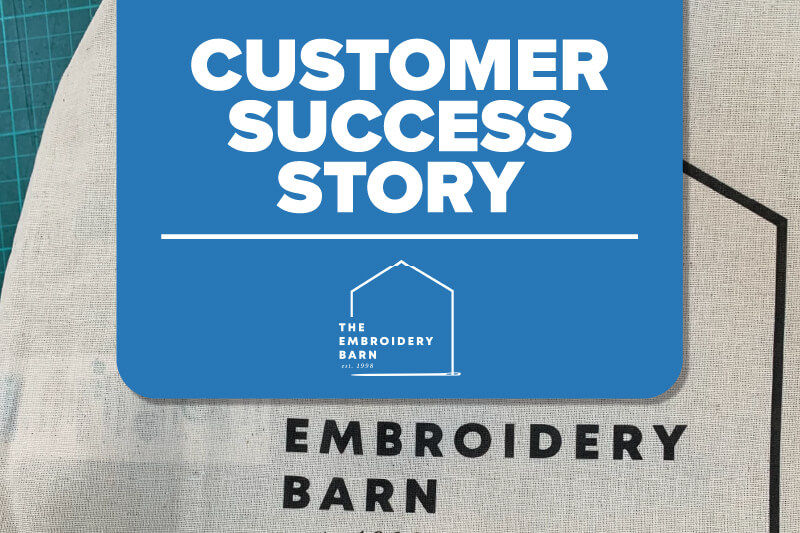Rosie Lees took over The Embroidery Barn in 2018 with no experience of producing promotional and personalised clothing, but investment in equipment such as the Roland VersaSTUDIO BT-12 direct-to-garment printer has helped her sail into success.
Founded in 1998 in Dorchester, The Embroidery Barn delivered workwear, sportswear and attire with embroidered details for 20 years before the owners decided to retire. Rosie heard about the opportunity to buy the business from a mutual friend and opted to pursue it – just in time, as the original owners were about to sell their equipment – but had a learning curve to overcome.
"My background is in windsurfing and sailing," explains Rosie Lees, Director of The Embroidery Barn. "I had no experience of embroidery or printing at all! But after hearing about the opportunity I couldn't forget about the idea.
"I joined the business for two months before the sale, then the previous owners stayed on for our busiest period over Christmas. In total it was a long handover period and it worked really well."
What worked less well, however, was the veteran embroidery equipment. A major machine broke down at a crucial time, so new owner Rosie had to purchase a replacement from Japan. This kicked off a series of investments designed to refresh The Embroidery Barn for the future.
"I had to refocus," Rosie explains. "But that gave me an opportunity to make improvements. The environment is a personal passion of mine and one of my goals is to see how sustainable I can make my business."

The Embroidery Barn already offered some printing services using vinyl, so Rosie went to the Printwear & Promotion LIVE! trade exhibition to look for more eco-conscious alternatives. She found the ideal system in the Roland VersaSTUDIO BT-12, a compact desktop direct-to-garment (DTG) printer. It can print crisp and colourful designs directly to cotton T-shirts, sweatshirts, tote bags and other products quickly and safely, without plastic waste. It's an ideal complementary technology to screen printing, embroidery and dye sublimation.
"When I saw the Roland BT-12 at the show I knew it was perfect," she says. "DTG is a more sustainable option as there's no plastic, and it was at a great price point. Our older printing machines can be complicated and clunky but with the BT-12 you just press a button and it off it goes. It's a smooth, lovely process that was very easy to learn. I love it."
Rosie offers printing alongside embroidery, often on the same product. For instance, a popular choice is a polo shirt with a left-chest embroidered logo on the front and printed design or name on the back.

"People like the high-quality finish of the embroidery with the contrast of the print," says Rosie, who is also using the BT-12 to print organic cotton tote bags to promote The Embroidery Barn. "Given our name, many people assume we only offer embroidery, but by giving our customers a printed cotton shopping bag with purchases we're showcasing our other services."
While The Embroidery Barn was a change in direction for Rosie, in the future she hopes to combine it with her love of the sea and her dedication to the environment. She plans to launch a new clothing brand, intended to run as a separate entity to The Embroidery Barn, with fashion manufactured from ocean waste and featuring DTG-printed designs.
